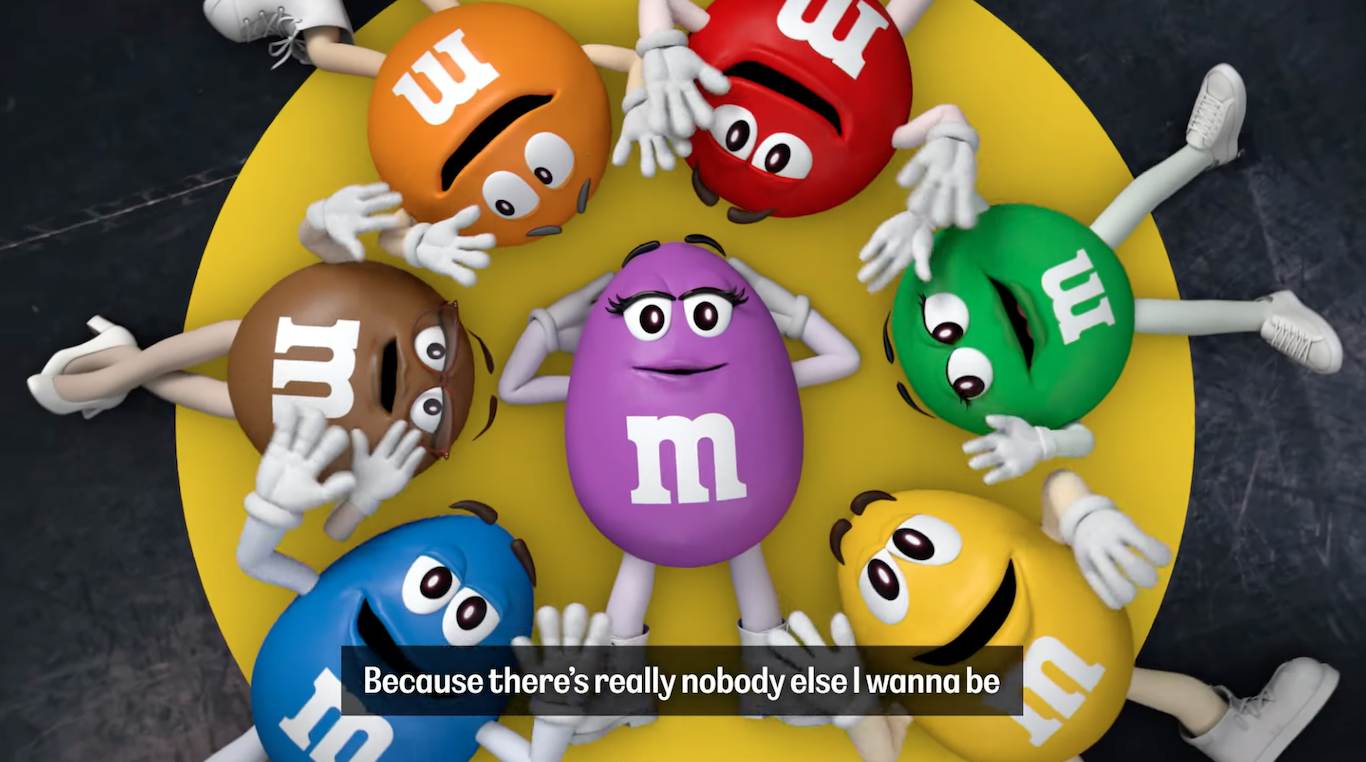In the ever-evolving digital landscape, certain terms can carry multiple meanings, often leading to confusion. "MMS new" is one such phrase that has been buzzing online, encompassing everything from fresh product innovations to deeply concerning social phenomena. While some might think of a new flavor of candy, the predominant and often troubling connotation of "MMS" in recent online discussions refers to a growing, dark online phenomenon: the spread of viral videos, often intimate and non-consensual, that raise serious questions about privacy, consent, and digital ethics. This article aims to uncover the truth behind these viral "MMS" videos, explore their dark side, and discuss the broader implications of "MMS new" in our interconnected world.
The Digital Deluge: Understanding Viral MMS Videos
The term "MMS" historically refers to Multimedia Messaging Service, a way to send pictures and videos via mobile phones. However, in the context of recent online virality, "MMS videos" have become synonymous with leaked, often intimate, private content that spreads rapidly across social media platforms and messaging apps. This phenomenon has become a significant concern, particularly in regions like India and Pakistan, where it has sparked widespread debate and caused immense personal distress.The Anatomy of a Leak: How They Spread
These videos, often featuring individuals in compromising positions without their consent, gain traction through various channels. They are shared on platforms like WhatsApp, Telegram, and various social media sites, often through private groups or direct messages, before eventually surfacing on public forums and news portals. The allure of "exclusive" or "scandalous" content drives their rapid dissemination, turning private moments into public spectacles. News outlets like news18.com and oneindia.com frequently report on "MMS latest news and headlines," highlighting the pervasive nature of this issue and how it dominates headlines. Websites even dedicate pages to showcasing "many MMS viral videos that come in the headlines a lot," making it disturbingly easy for users to access them.A Global Phenomenon: India, Pakistan, and Beyond
The problem of leaked "MMS" videos is not confined to a single region; it's a global issue with significant local impacts. In India, for instance, the "Indian viral MMS videos" have become a growing online phenomenon. One of the most harrowing examples is the case of a young woman in Siliguri, West Bengal, who tragically committed suicide after a college senior circulated an intimate "MMS" of the two of them. This incident, along with others, sparked a heated debate about consent and the sharing of private content, underscoring the severe real-world consequences of digital actions. Another high-profile case involved the Chandigarh University video leak, where a woman student was arrested for allegedly leaking obscene videos of hostel inmates. The Punjab Police recovered a dozen clips, all belonging to the arrested student. In a new twist, the accused MBA student revealed she was being pressured by others, highlighting the potential for coercion and exploitation in such incidents. Celebrities and influencers are particularly vulnerable targets. In 2024, "viral MMS scandals dominated headlines as private videos of influencers and celebs like Oviya Helen, Minahil Malik, and Pragya Nagra surfaced online." Pakistani TikTok star Minahil Malik has repeatedly made headlines, first with an alleged "MMS leak controversy" and later with a new dance video trending online. Mishi Khan even controversially alleged she leaked an "MMS video herself to gain attention," pointing to the complex motivations and consequences surrounding these incidents. Other notable cases include: * **Sona Dey:** A viral "MMS" video allegedly featuring the social media influencer spread widely, purportedly showing her in a compromising position. In response, Sona directly addressed the issue, demonstrating the need for victims to reclaim their narrative. * **Karmita Kaur:** The internet celebrity's world was torn apart in October 2023 when a viral clip purportedly showing a naked Karmita circulated online. * **Anjali Arora:** The social media star took legal action against news portals and YouTube channels for sharing a morphed "MMS" video of hers that went viral in August 2022, highlighting the issue of digitally altered content. * **Imsha Rehman:** A video of Pakistani influencer Imsha Rehman in a compromising position surfaced online, with some accusing her of leaking the video for social media fame. Imsha responded by deactivating her social media account. * **Kanwal Aftab:** She became a recent victim of a Pakistan "MMS" scandal, with leaked videos and images reportedly showing her in a compromising situation. * **Raja Chaudhary and Shweta Tiwari:** Their leaked "MMS" is another example of how private content involving public figures can become viral.The Human Cost: Privacy, Harassment, and Suicide
The consequences of sharing sensitive information without consent are devastating. Individuals featured in these videos often face: * **Cyberbullying and Digital Harassment:** They become targets of online abuse, shaming, and ridicule, leading to severe emotional and psychological distress. * **Privacy Concerns:** The fundamental right to privacy is violated, as their most intimate moments are exposed to the public without their knowledge or consent. * **Reputational Damage:** Their personal and professional lives can be irrevocably damaged, leading to social ostracization, job loss, and difficulty in forming relationships. * **Mental Health Impact:** Victims often suffer from anxiety, depression, trauma, and, in extreme cases, suicidal ideation, as seen in the Siliguri incident. The incident involving the Siliguri woman sparked a heated debate about consent and the sharing of private content, emphasizing that sharing such videos is not just a breach of privacy but a profound violation of trust and human dignity.Beyond the Scandals: Other Meanings of "MMS"
While the focus of "MMS new" in viral discussions is heavily skewed towards leaked videos, it's worth noting that the acronym "MMS" can refer to other entities, though these are far less prevalent in the context of recent online trends: * **M&M's (The Candy Brand):** The beloved chocolate candy brand, M&M's, occasionally introduces "new" products or experiences. For instance, "positioned in the heart of Broadway, M&M's Times Square is officially the hottest performance in town." The brand also recently launched its "first new flavor innovation since 2022," introducing "Peanut Butter & Jelly M&M’s." This signifies a delightful combination, proving that "the only flavor pairing more classic than chocolate and peanut butter is PB & J—so combining all three can only mean delicious things." This "MMS new" is a stark contrast to the digital privacy issues. * **MMS (Medical Society):** The Massachusetts Medical Society (MMS) is "a community of physicians, residents, and medical students" that serves as "a respected leader in advancing medical knowledge and advocating for physicians and patients to improve health outcomes." They offer "on-demand and live CME activities" for physicians who value excellence in their medical education. This "MMS new" relates to advancements in healthcare and professional development. However, it is crucial to recognize that when "MMS new" trends online, it is almost exclusively in the context of the viral video controversies, as evidenced by news headlines like "MMS latest Hindi news" and "MMS breaking news" from outlets like Live Hindustan, which primarily cover these scandals.Navigating the Digital Landscape: Protecting Yourself and Others
Given the pervasive nature of viral "MMS" videos, understanding how to navigate this complex digital landscape is crucial for individuals and society. * **Promoting Digital Literacy and Consent:** Education about digital consent, the permanence of online content, and the severe consequences of sharing private information is paramount. Everyone needs to understand that sharing someone's private content without their explicit consent is a crime and a violation. * **Legal Recourse:** Victims of such leaks have legal avenues. Anjali Arora's decision to take legal action against news portals and YouTube channels for sharing a morphed video sets a precedent for seeking justice. Police involvement, as seen in the Chandigarh University case, is also vital in investigating and prosecuting those responsible for the leaks and their dissemination. * **Direct Response and Support:** While challenging, some individuals like Sona Dey have chosen to directly address the issue, taking control of their narrative. Support systems for victims, including mental health services and legal aid, are essential. * **Responsible Reporting:** Media outlets play a critical role. While they report on these incidents, they also have a responsibility to do so ethically, avoiding sensationalism that further exploits victims and ensuring they do not inadvertently spread the content. News outlets like NDTV.com often provide updates on "MMS viral latest news, videos & pictures," and their role in informing the public responsibly is vital. * **Ethical Online Behavior:** Every internet user has a responsibility to think critically before sharing content. If you encounter a private video that seems to have been leaked, do not share it. Report it. Understand the impact your actions can have on another person's life.Conclusion
The phrase "MMS new" encapsulates a multifaceted reality, but its most prominent and concerning manifestation in today's digital age revolves around the proliferation of non-consensual viral videos. These incidents highlight the dark side of viral content, bringing to light critical issues of privacy concerns, social implications, and the devastating consequences of sharing sensitive information. From cyberbullying and digital harassment to tragic suicides, the human cost is immense. While "MMS" can also refer to new candy flavors or advancements in the medical field, the urgency lies in addressing the widespread harm caused by leaked private content. It is imperative for individuals, communities, and legal systems to collaborate in fostering a safer digital environment, promoting digital literacy, upholding consent, and ensuring that justice is served for those whose privacy is violated. The ongoing debates about consent and the sharing of private content underscore the need for continuous vigilance and ethical responsibility in our increasingly interconnected world.:max_bytes(150000):strip_icc():focal(734x479:736x481)/mm-new-designs-1-c8b2a796ff56429a8c413010d22ce5ca.jpg)

